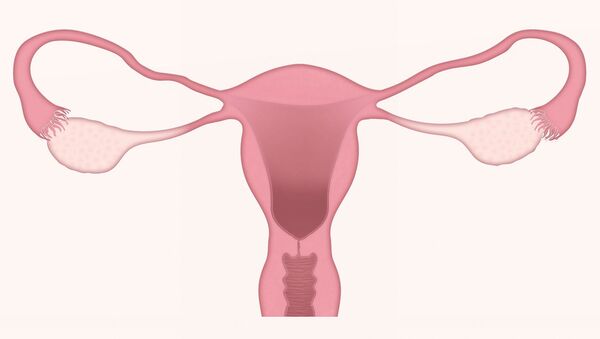In a country where talking about menstruation is viewed as a social taboo; where some women are still compelled to live in secluded huts during their periods and refrain from entering the kitchen, a discussion on recognising this feature of the female body has come as a progressive development.
With food delivery firm Zomato's decision to grant 10 annual leave days to women during their periods, a debate has triggered as to whether this move for women violates egalitarian norms because they are not being treated the same as men.
All India Progressive Women's Association (AIPWA) Secretary Kavita Krishnan told Sputnik that a workplace which does not have period leave is only designed for people who do not menstruate.
"To demand period leave is not to demand special policy or a privilege for women. It is to demand that a workplace recognises that all workers don't have male bodies. It is to accept bodies that mensturate as a norm, instead of seeing them as an irritating deviation from the norm," Krishnan said.
Menstruation leaves are now the norm in several countries. While Japan calls it 'seirikyuuka' - physiological leave, Indonesia too allows two days a month for menstrual leave to female workers. South Korea and Taiwan also offer leave.
Several prominent female personalities in India, including journalist Barkha Dutt, are not pleased with the move. Dutt has maintained that menstruation leave is equal to the "ghettoisation of women".
Sorry Zomato, as woke as your decision on #PeriodLeave is, this is exactly what ghettoizes women and strengthens biological determinism. We cannot want to join the infantry, report war, fly fighter jets, go into space, want no exceptionalism and want period leave. PLEASE.
— barkha dutt (@BDUTT) August 11, 2020
On being asked about whether asking for period leave implies hypocrisy in the ideals of feminism or show women as a weaker sex, AIPWA’s Krishnan disagrees. She said this is a certain kind of liberal feminism that basically forgets this that feminism should be for 99 percent of women.
"Our lives and bodies should not be tampered with to accommodate the workplace. Many women might be doing things during periods in spite of a lot of discomfort or pain and it can be continued, but it's our workplaces that should be adjusted to accommodate our lives, rather the other way round," she said.
Last year, a news report went viral in India pointing out that female agricultural workers in Maharahstra state's Bheed district were opting to undergo a hysterectomy so as not to have periods. It was stated that since they were thrown out of jobs during their periods, they chose to have their uteri removed.
Addressing the issue, Krishnan explained this is a drastic example of women being forced to change their bodies to get work.
"For all purposes, you turn your body into a caricature of a male body in order to get the work that you deserve. Pretending that you do not have any discomfort during your period at your workplace is basically another version of the same thing. You may not be cutting out the uterus, but you are pretending you don't have one," she said.
From a Medical Perspective
Some women suffer debilitating effects during their periods, making it impossible for them to step out of bed. Many undertake meticulous planning to ensure that important official meetings and events don't coincide with their biological clocks starting to tick.
Stating that the initial 2-3 days of menstruation are marked by severe pain, and that during these days women would prefer to take leave if they are working professionals, Dr. Nupur Gupta, a gynaecologist from the Well Woman Clinic, told Sputnik that proper rest helps the body revive and tackle the pain efficiently, as well as sustain a proper mental well-being.
"Menstrual pain is a natural and common phenomenon in women in their reproductive ages, which is termed as dysmenorrhoea. Undergoing a variety of hormonal changes in their body, a woman may experience severe pain, dizziness, urge to urinate, an emotional imbalance causing irritation, anxiety and mood swings," she stated.
One in every five women in India suffers from Polycystic Ovarian Syndrome (PCOS), the PCOS Society of India pointed out in a report in 2019. The condition, which also results in irregular and painful periods, puts women at a high risk of developing diabetes, high blood pressure, and other health complications.
Talking about the Polycystic Ovarian Disease, Dr. Gupta said women who are suffering from PCOD are more prone to experience depression than other people.
Corporate scenario
Meanwhile, questions are being raised as to whether there's a scope for such a policy in the corporate sector in the country, which is characterised by cut-throat competition.
Explaining the situation, Vishy Vincent, a corporate lawyer with a major firm, told Sputnik that currently the law does not have a provision for menstruation leaves and that there's a standard sick leave policy which differs from state to state, coming roughly to 24 days per annum.
"We have made a lot of progress over the years in terms of maternity leave, but this hasn't been discussed much, and it might turn out to be more of a voluntary exercise where corporations will take up such a policy on their own. A lot of time and discussion precede the enforcement of a new law and we haven't reached that stage yet," he said.





